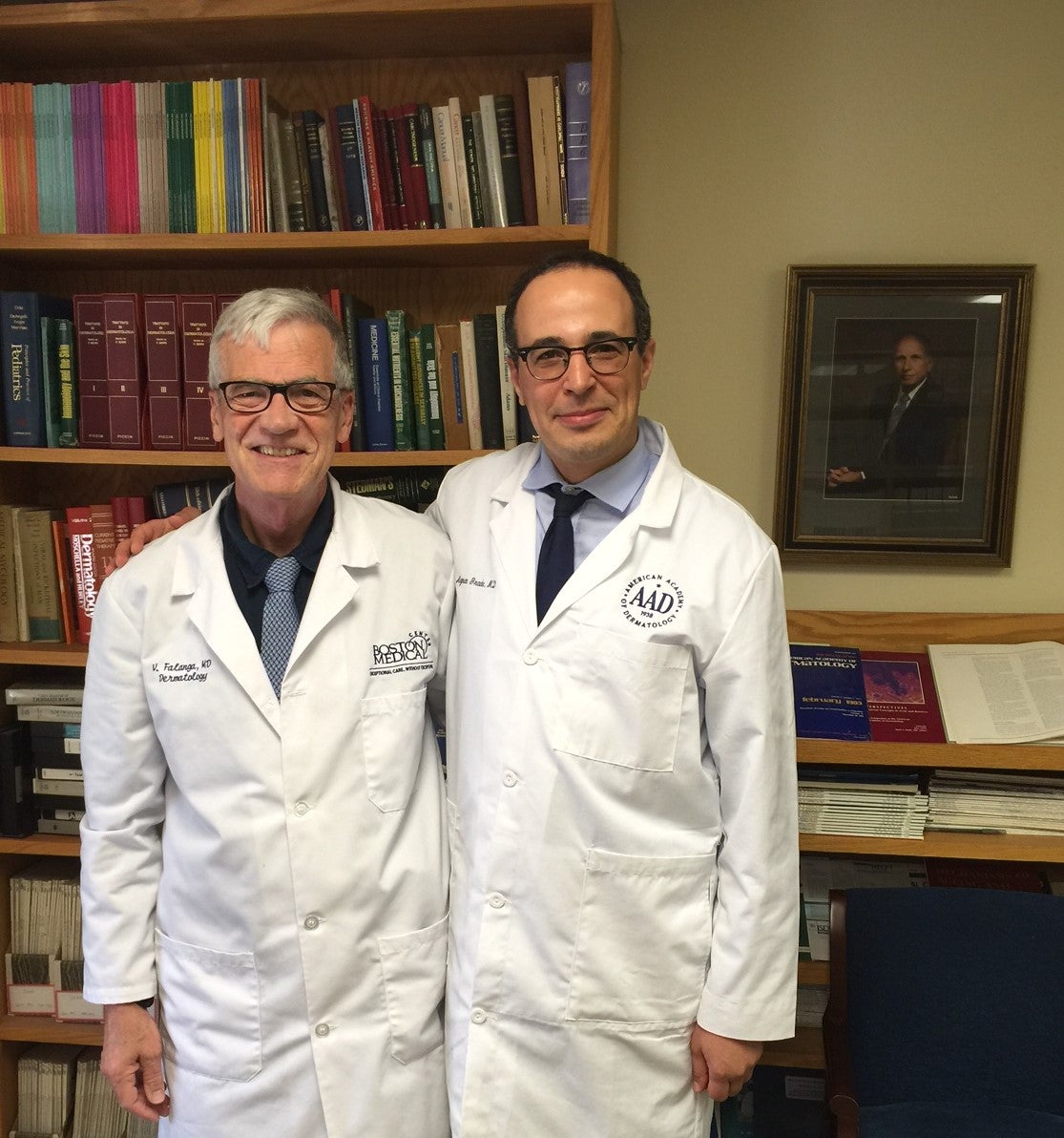News & Highlights
Topics: Clinical & Translational Research, Education & Training, Mentoring
In Focus: The Complexities of Wound Healing
Harvard Catalyst Education & Training. Ayman Grada discovers several courses to help advance his work in healing chronic wounds.

In discussions with colleagues within Boston’s scientific community, physician/researcher Ayman Grada noticed that the subject of network medicine — the investigation of networks of interacting molecular and cellular components. — was coming up again and again. A postdoctoral fellow in cutaneous wound healing in Boston University’s Department of Dermatology, Grada thought that a network-based approach might help in his research, which focuses on healing chronic wounds.
He wanted to learn more.
Grada searched online and found what he was looking for when he discovered Introduction to Network Medicine, a three-day, on-site introduction to network medicine offered by Harvard Catalyst. “I’m not from Harvard, but we’re in the same consortium, so I was fortunate to have access to the program,” he says.
Grada, who also sees patients and teaches and lectures on the topic of wound healing, is excited by this new approach and its potential for advancing his research which involves obtaining and applying bone marrow stem cells to treat ulcers.
“Wound healing is a complex process of interdependency and collective cell migration, and network medicine is definitely relevant,” Grada says. “It allows you to use artificial intelligence and machine learning to detect patterns and gain new insights. It’s a shift from the reductionist approach to medicine to a more holistic approach. In the reductionist approach, we attribute one disease to one gene, but disease is an outcome of interactions between different factors: genes, epigenetics, the environment.”
“These courses are not YouTube courses. They are technical, relevant, and offer a high level of expertise.”
Describing his research as translational, Grada expects his findings to lead to a “clinical reality” that will bring his work to the intersection of science, medicine, and industry. “Things are changing in academia. One must be open to options and be flexible,” he says. “Industry plays a big role in changing society, so I think collaboration there is important. I want to be at the interface and be contributing to human health.”
Participation in the Introduction to Network Medicine course was just the beginning for Grada, who has since enrolled in several more courses, including the online Introduction to Mixed Methods Research and Elements of Grant Writing courses and the half-online, half-on-site Clinical Trial Design course. “These courses are excellent resources for someone like me who is just starting his career,” Grada says. He also plans to enroll in the Introduction to Omics Research course that Harvard Catalyst offers. Omics research, an emerging field of study with the potential to understand and view biology from a global perspective, is another approach that is relevant to his research.
Grada is impressed by the high quality of Harvard Catalyst’s offerings. “These courses are not YouTube courses. They are technical, relevant, and offer a high level of expertise,” he says. “I recommend researchers and physicians take advantage of the program. It’s the best platform so far for learning about topics that are relevant to translational research. I’ve learned lots from the expertise that Harvard Catalyst provides.”
This article is the first in a new series which highlights biomedical researchers at Harvard University (and affiliate academic healthcare centers) and beyond who have utilized our resources, participated in courses and training programs, and who have received funding and other forms of support.
If you are interested in participating in this series, we’d be happy to hear from you. Email us at communications@catalyst.harvard.edu.

